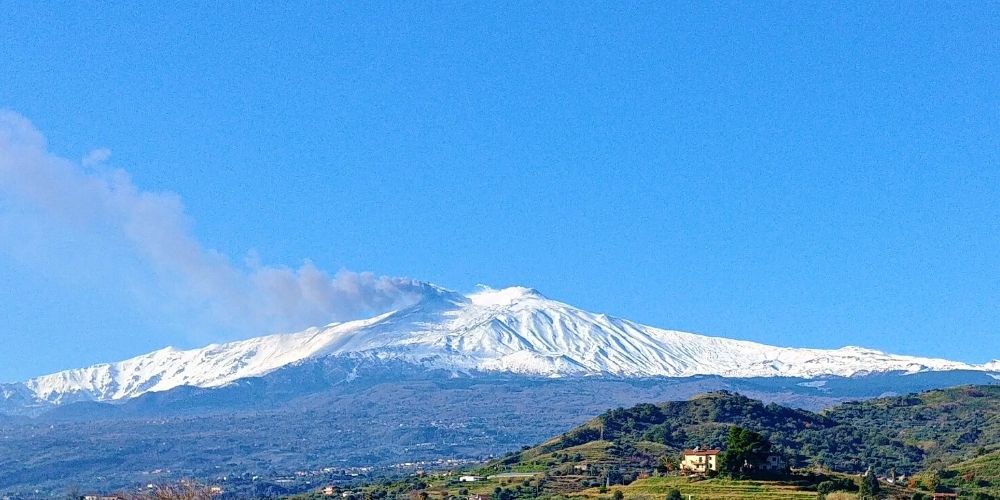
Mount Etna in Italy is a beautiful but potentially dangerous place to hike. In fact, it can be fatal if hikers and tourists are not prepared. One of the main offenders of this danger is altitude sickness. We'll show you 2 ingredients to prevent Mount Etna altitude sickness.
The iconic volcano in Sicily Italy, Mount Etna is one of the most active volcanoes in the world and Europe's tallest and most active volcano. Mount Etna altitude towers at 11014 feet (3357 m), making it the highest peak on the island of Sicily.
It's an amazing site that you can see and experience if you travel to Sicily. It's also a high risk of altitude sickness.
According to the Cleveland Clinic, 50% of people who travel above 8,000 feet experience forms of altitude sickness.¹ Frequent travelers, mountaineers and high-altitude dwellers know that headache, nausea and dizziness are often the first signs of altitude sickness. The higher the altitude, the greater the risk of suffering from altitude sickness.
The primary cause of altitude sickness, Acute mountain sickness (AMS), is your body not adjusting to the change in pressure at higher elevations. Altitude sickness occurs when you can't get enough oxygen from the air at high altitudes, also known as hypoxia. This causes symptoms such as:
Climbing Mount Etna is a challenge. It's Europe's tallest active volcano and the highest peak in Italy south of the Alps.
Wondering how to avoid altitude sickness and you make sure you stay at peak performance? Altitude training experts recommend using natural remedies that counteract the effects of low oxygen levels in your blood.
There are a lot of different strategies to prevent altitude sickness and acclimatize the body to high altitudes. These two ingredients for altitude sickness prevention are among the most common and easiest to find.
Here's Two Ingredients To Prevent Mount Etna Altitude Sickness:
The combination of both these altitude studied ingredients will give your body the boost it needs when encountering high altitude conditions. Together they make one of the best supplements for altitude sickness that you can find in altitude adjustment pills or chewables like Zaca.

Our chewable hydration packets contain both of these altitude combating ingredients -- glutathione and glutamine. First gaining popularity throughout Colorado for visitors wanting an altitude solution, this is a great supplement to bring along your next high altitude journey. Be best prepared and try our zaca hydration packet today!
SOURCES:
1. Altitude Sickness
https://my.clevelandclinic.org/health/diseases/15111-altitude-sickness
2. Effect of high altitude (7,620 m) exposure on glutathione
https://pubmed.ncbi.nlm.nih.gov/11320641/
3. The Possible Importance of Glutamine Supplementation to Mood and Cognition in Hypoxia from High Altitude
https://www.ncbi.nlm.nih.gov/pmc/articles/PMC7760805/
Copy the coupon code & use it at checkout